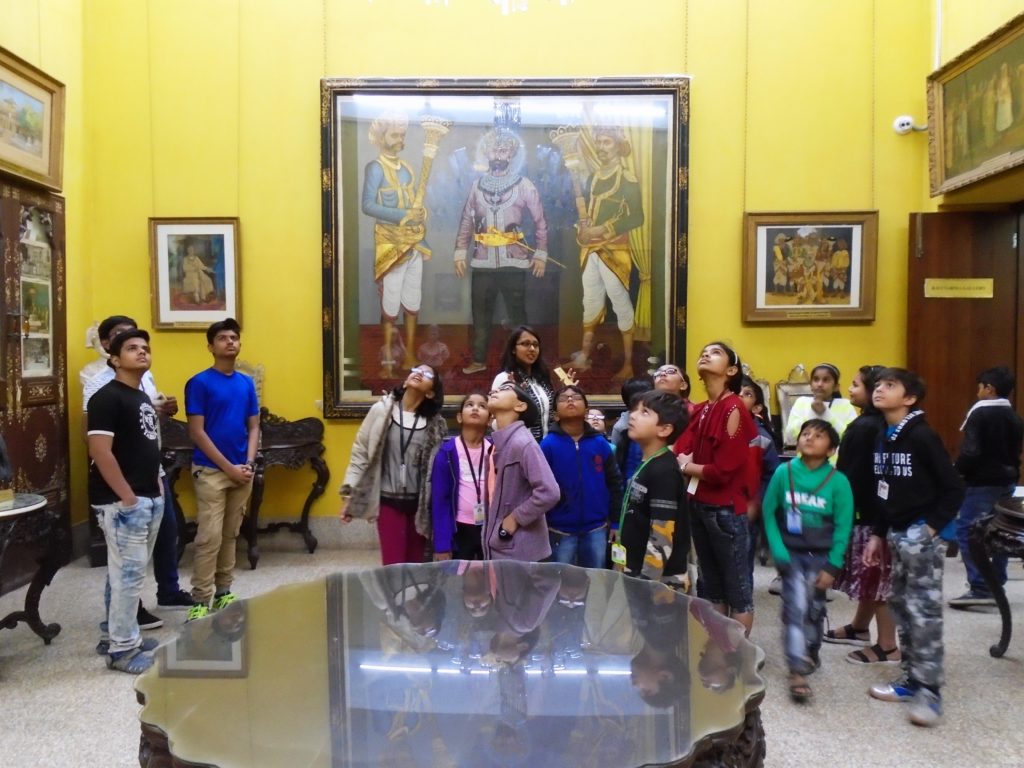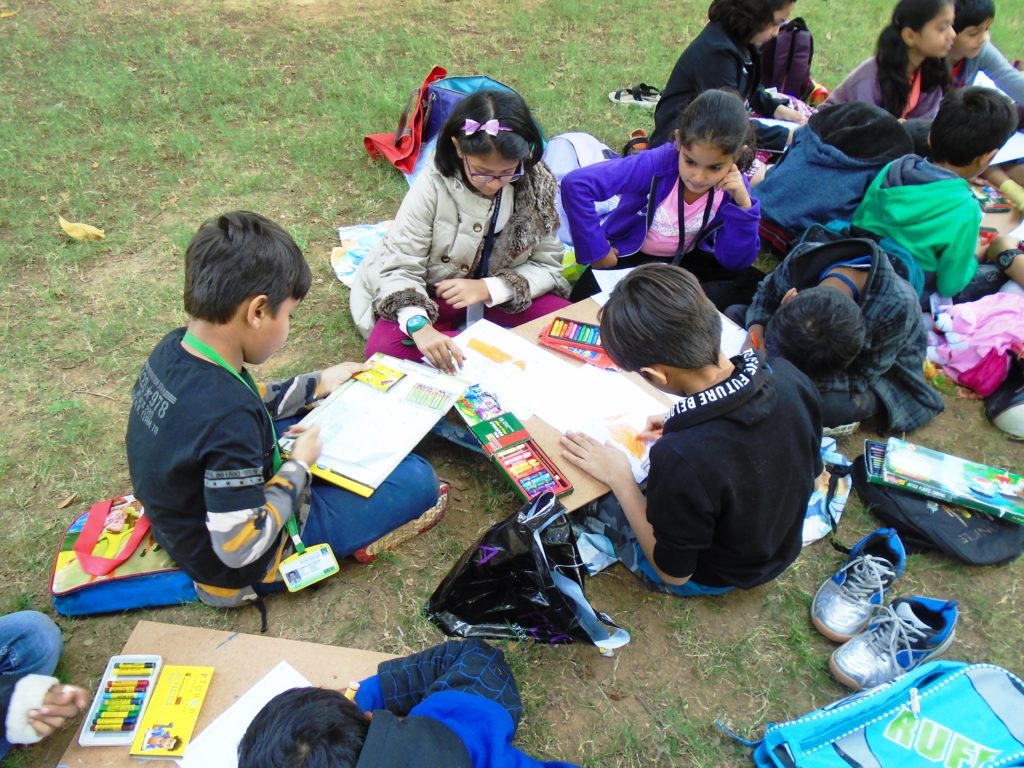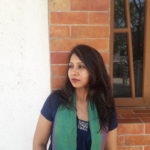This month we’re in conversation with Dr. Kanika Mondal, a museum consultant working within Gujarat, she also recently joined IGNCA, Vadodara as Project Associate. Her specialisation and expertise lies in conceiving and conducting special learning programs for children at museums.
ReReeti : Children comprise a significant part of the audience in museums be it in India or elsewhere. You seem to have completed your doctoral study on this subject. So could you please share with us your observations in this area? What role are you trying to play to supplement a change?
KM : The crux of my doctoral study on ‘Children and the role museums play in their development’, brought to light the fact that in India there seems to a huge gap between the learning needs of children at various age groups and what museums actually offer to them. The fact that most of our museums are yet to recognize and tap this need fully, creates a gap in their offerings.
Fulled with the desire to make a difference and to bridge this gap at my own personal level, soon after completing my doctoral studies last year, I initiated ‘Storytelling sessions and Museum Walks’ for children and their parents in museums of Vadodara, Gujarat. These programmes have been planned under the aegis of the Vadodara Regional Centre of the Indira Gandhi National Centre for the Arts (IGNCA) in collaboration with the Museum and Picture Gallery, Baroda and the Maharaja Fatesingh Museum, Vadodara. Each learning session also includes a hands-on activity for children at the end of the session which aims at reinforcing the learnt concepts. This is just a small endeavor to nurture an indispensable relationship between museums and children.

Children enjoying the Gaekwad’s collection in the ‘Old Baroda Room’ of the Maharaja Fatesingh Museum during a storytelling session.
ReReeti : If you had to list five areas which need to be looked into by museums to develop their learning programmes what would they be?
KM: Besides having a person/ department dedicated to education, museums should keep the following in mind:
– Awareness about the unique learning needs of children at various stages of childhood
– Adequate experience and expertise in catering to children among staff members spearheading the educational programme.
– To have staff members with a strong museological training
– Well versed or have sufficient knowledge about the museum collection
– An ability to interpret the museum collections to children (which is different from adults)
ReReeti : Which colleges or universities according to you offer a strong base in museum learning in India?
There are many universities and colleges offering excellent programmes. These institutes are pioneers in museum training and include: the Maharaja Sayajirao University of Baroda (Baroda, Gujarat); Aligarh Muslim University (Aligarh); University of Kolkata (Kolkata); Banaras Hindu University (Benaras); National Museum Institute (New Delhi); University of Rajasthan (Jaipur). As a part of their professional training, students receive internships at various museums across the country which gives them practical exposure to the field prior to the commencement of their actual jobs.
ReReeti : How do/can museums address the various learning requirements of different age groups?
KM: A common practice in museums abroad is the employment of school teachers. Unfortunately, this trend has still not seeped into our Indian mind-set.
Designing programmes involving parent participation helps as they understand and know the peculiar needs of their children. They can be an asset to any and every museum aspiring to improve on their learning programmes for children
Educators should receive special training to help them cater to children across various stages of childhood in a museum setting.
Children, being in their earliest stages of life, are equipped to digest small amounts of information, at regular intervals and in a simple format. This need should be kept in mind while designing programmes for them; mellowing down the content when offered to children as for them ‘less is more’.

In the second part of the session, children solve their activity sheets designed on the mythological stories around the paintings of Raja Ravi Varma which are on display in the museum.
ReReeti : Which museums in India have a good learning programme?
KM:A few good examples of museums doing commendable work in this direction include the: National Museum, New Delhi; Chhatrapati Shivaji Maharaj Vastu Sangrahalaya (CSMVS, Mumbai); Bhau Daji Lad Museum (Mumbai); City Palace Museum (Jaipur); Sardar Vallabhbhai Patel Museum and Planetarium under the Municipal Corporation (Surat, Gujarat); Sardar Vallabhbhai Patel University Museum (Vallabh Vidyanagar, Gujarat).
Note: The phrase ‘for a better tomorrow’ is borrowed from Prof. Sunjay Jain’s article titled ‘Children’s Museum: For a Better Tomorrow’.
 Dr. Kanika Mondal is a museum consultant working in Gujarat and has recently joined IGNCA Vadodara as a Project Associate. She holds a doctoral degree in Museum Education from the Department of Museology, the Maharaja Sayajirao University of Baroda (Vadodara, Gujarat). She is a recipient of a number of fellowships and awards including the prestigious UK Visiting Fellowship from the V&A Museum, London in 2016-17; Chancellor’s Gold Medal in 2007; HRD Scholarship from the Ministry of Culture, Govt. of India, in 2004. Dr. Mondal has around 13 publications to her credit which includes research articles in university and state level publication in refereed journals and books. She has been conceiving and conducting special learning programmes for children in museums of Vadodara.
Dr. Kanika Mondal is a museum consultant working in Gujarat and has recently joined IGNCA Vadodara as a Project Associate. She holds a doctoral degree in Museum Education from the Department of Museology, the Maharaja Sayajirao University of Baroda (Vadodara, Gujarat). She is a recipient of a number of fellowships and awards including the prestigious UK Visiting Fellowship from the V&A Museum, London in 2016-17; Chancellor’s Gold Medal in 2007; HRD Scholarship from the Ministry of Culture, Govt. of India, in 2004. Dr. Mondal has around 13 publications to her credit which includes research articles in university and state level publication in refereed journals and books. She has been conceiving and conducting special learning programmes for children in museums of Vadodara.
ReReeti works with museums, galleries and heritage sites across India to plan strategies, design systems and implement programmes to increase audience engagement and institutional/ company visibility. Email us at info@rereeti.org for a free consultation or to collaborate on an upcoming exhibition.








Recent Comments